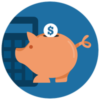Understanding Homebuying Costs: What You Need to Know
Introduction
Buying a home is an exciting journey, but it comes with various costs beyond just the purchase price. From down payments to closing costs and escrow fees, understanding all the expenses involved will help you budget effectively and avoid surprises.
This guide breaks down the essential costs of homeownership, helping you make informed financial decisions.
Key Concepts
1. Down Payment and Closing Costs
Your down payment and closing costs are two of the biggest expenses in the homebuying process.
Down Payment
Your down payment is the upfront amount you pay toward your home’s purchase price. It typically ranges between 3% and 20%, depending on factors like credit history, loan type, and lender requirements.
💡 Key Considerations:
✔ Lower down payments (3%-5%) may require private mortgage insurance (PMI).
✔ Higher down payments (20% or more) eliminate PMI and reduce monthly mortgage costs.
✔ Down payment assistance programs may be available to help first-time buyers.
Closing Costs
Closing costs (also called settlement fees) typically range between 2% and 5% of the home’s purchase price. These costs cover services provided by lenders, real estate agents, and third parties involved in the transaction.
📌 Common Closing Costs Include:
- Government recording fees
- Appraisal and credit report fees
- Lender origination and underwriting fees
- Title services and attorney fees
- Tax service and survey fees
💡 Example:
If you purchase a $200,000 home, expect to pay between $4,000 and $10,000 in closing costs.
📖 Explore: Down Payment and Closing Cost Calculator to estimate your total expenses.
Data Insights: Understanding Escrow
2. What is Escrow and Why Does It Matter?
Escrow is a financial arrangement where a third party holds and transfers money or property on behalf of the buyer and seller. You will encounter two types of escrow accounts during your homebuying journey.
Earnest Money Escrow
Also called good-faith money, this deposit (usually 1%-2% of the home price) is submitted with your offer to show the seller you’re a serious buyer.
✔ The money is held in an escrow account until closing.
✔ It is credited toward your down payment or closing costs at final purchase.
Reserve Account Escrow
Once you own your home, your lender may require an escrow account for property tax and insurance payments.
✔ Upfront Costs: Most lenders require two months’ worth of reserves at closing.
✔ Ongoing Payments: A portion of your monthly mortgage payment goes into this escrow account, and your lender uses it to pay your property taxes and insurance when due.
💡 Benefit: Escrow eliminates the risk of large, unexpected tax and insurance bills.
📖 Explore: How Escrow Accounts Work for more details.
Common Misconceptions About Homebuying Costs
❌ “I only need to save for my down payment.”
✅ Closing costs, escrow fees, and other expenses can add thousands to your total homebuying costs.
❌ “My closing costs will be the same for any home.”
✅ Closing costs vary based on location, lender, and home price. Always review your Loan Estimate for detailed costs.
❌ “I can avoid an escrow account.”
✅ Some lenders require escrow accounts. If optional, waiving escrow may result in higher fees or an increased interest rate.
Practical Applications: How to Prepare for Homebuying Costs
Tips for Managing Your Homebuying Budget
✔ Start saving early – Aim for both a down payment and closing costs.
✔ Use assistance programs – Many first-time buyers qualify for down payment aid.
✔ Factor in ongoing costs – Property taxes, insurance, and maintenance add to long-term expenses.
✔ Review your Loan Estimate – Your lender will provide a detailed breakdown of closing costs before finalizing your mortgage.
📖 Learn More: Homebuyer’s Budgeting Guide to create a financial plan.
Next Steps
✅ Calculate Your Total Costs – Use an online calculator to estimate your down payment and closing fees.
✅ Research Lender Fees – Compare different lenders to find the best mortgage terms and lowest closing costs.
✅ Ask About Escrow Requirements – Discuss with your lender whether an escrow account is mandatory for your mortgage.
✅ Plan for Unexpected Expenses – Keep extra savings for possible repairs, moving costs, and future home maintenance.
By understanding the full scope of homebuying costs, you can confidently navigate your home purchase and make well-informed financial decisions. 🏡💰
Understanding homebuying costs
As you start your homebuying journey, take the time to get a sense of all costs involved, from your down payment to closing costs.
If you’re in the market to buy a home, your down payment is probably top of mind. And rightly so — it’s likely the biggest cost of homebuying. However, it is not the only cost and it’s critical you understand all your expenses before diving in.
The more prepared you are for your down payment, closing and other costs, the smoother your homebuying journey will be.
Down payment and closing costs
Down payment: Depending on your credit history and other factors, you’ll need to make a down payment ranging from 3% to 20% of the purchase price of your home. Take the time to learn about down payment options, private mortgage insurance (PMI) and down payment assistance programs.
Closing costs: These costs (also called settlement fees) are incurred as part of the homebuying process. These are fees charged by people representing your purchase, including your lender, real estate agent and other third parties involved in the transaction. Generally, closing costs range between 2% and 5% of your purchase price and include:
-
Government recording costs
-
Appraisal fees
-
Credit report fees
-
Lender origination fees
-
Title services
-
Tax service fees
-
Survey fees
-
Attorney fees
-
Underwriting fees

